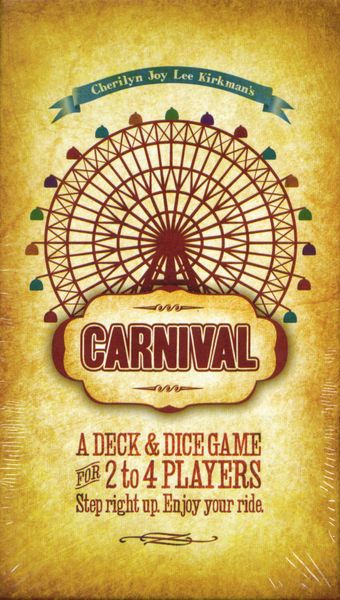Carnival (2011) Board Game
Carnival is a card game released in 2011, designed by Christopher Kirkman and illustrated by Dice Hate Me Games. The game is designed for 2-4 players, with a recommended age of 13 and up. It falls under the categories of card game and dice game, utilizing mechanics such as dice rolling, hand management, set collection, and variable player powers.
Game Components of Carnival
How To Setup Carnival
To set up Carnival, each player starts by drawing a hand of six cards. The remaining cards are placed in a draw deck, and the discard pile is initiated. Each player receives three tickets. The game area is set up with the center board and player aid cards. Players then discard down to six cards in their hand, and the game is ready to begin.
Gameplay Mechanics and Game Objective
Player Experience
Playing Carnival involves a mix of strategic planning and tactical adjustments. Players must balance their need to collect specific cards with the unpredictability of the dice rolls and the actions of their opponents. The game features a unique blend of luck and strategy, making it engaging but also somewhat unpredictable. The thematic elements, such as the carnival setting and the art design, add to the game’s charm.
Pros
Cons
Personal Thoughts on Carnival
Carnival is ideal for players who enjoy light to medium-weight games with a mix of luck and strategy. It is particularly suited for families or casual gaming groups looking for a game that is easy to learn but still offers some depth. However, serious gamers might find the lack of control over dice rolls and the limited number of Wild cards to be frustrating. Overall, Carnival is a fun and visually appealing game that is perfect for those who enjoy set collection and rummy mechanics with a touch of luck and social interaction.
We are supported by our audience. When you purchase through links on our site, we may earn an affiliate commission, at no extra cost for you. Learn more.

